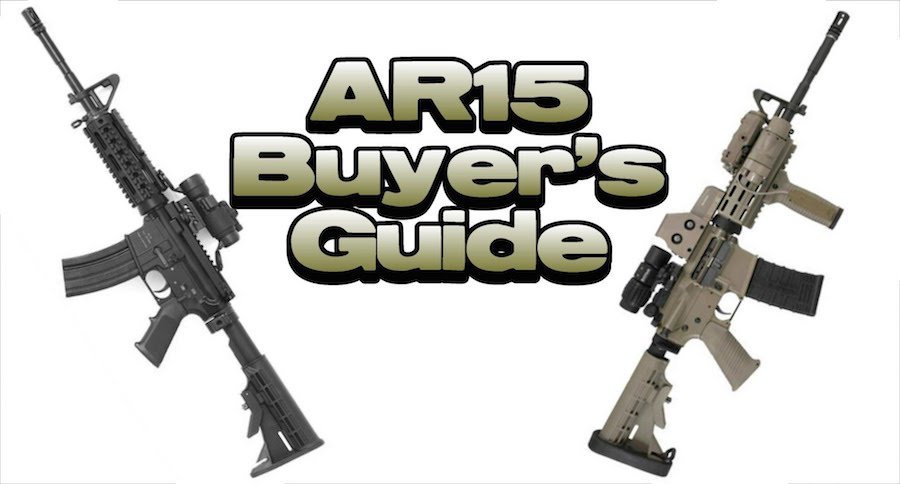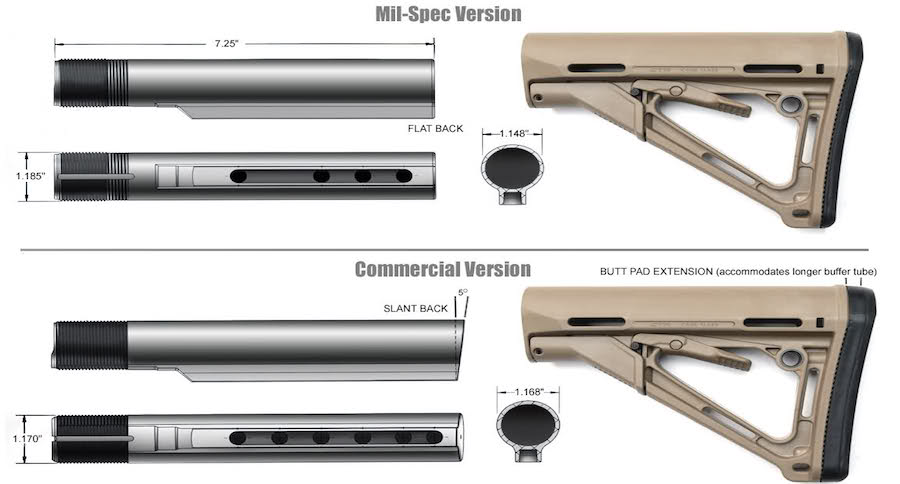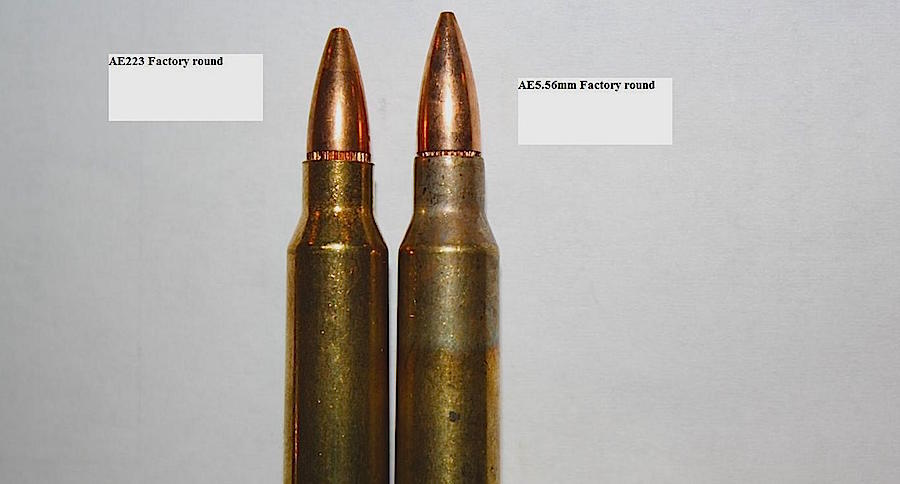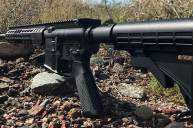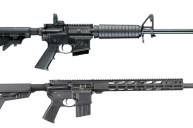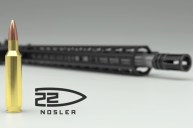Your concise AR-15 Buyer's Guide: What they don't tell you in gun stores about the AR-15.
The AR-15 gained a huge amount of notoriety and popularity in recent years, and it's led to more competition in the marketplace.
Retailers are pulling out all the stops to claim your hard earned-dollar, and this also goes for firearms manufacturers.
How are you supposed to know what's a good buy, and what could be little more than just a gimmick? Here's you concise AR-15 buyer's guide, to help make sense of the choices and determining features you'll have to make.
This is not meant to be an end all, be all Ar-15 Buyer's Guide, because there are tons of those out there. I wanted to bring you something different that you don't always see concerning AR-15s.
The two big things I want to remind you to be aware of is the concept of Mil-Spec and your cartridge size. Read on for more on both.
Mil-Spec vs. Commercial Parts
The elephant in the room arrives early in this guide. I have seen and been involved in countless debates of what Mil-Spec actually is and if it's any better than commercial pieces. Here is what you need to know.
Mil-Spec basically refers to the huge list of technical specifications that the U.S. military sends to their contractors dictating how those manufacturers are to make their equipment. It includes suggestions on types of steel/aluminum used, coatings, spring weights, machining processes and everything else you can imagine.
By definition, there are no rifles out for civilian purchase that are true Mil-Spec and that don't require a Tax Stamp.
Now, just about every manufacturer makes rifles that have some Mil-Spec parts, but there's no use in letting the salesman try to pressure you to buy something that is out of your budget. There's little truth to the idea that something is "more" Mil-Spec than anything else.
The only part that you should pay attention to is the buffer tube. A Mil-Spec buffer tube is smaller in diameter than a commercial one, and this will come into play if you want to swap out stocks. Make sure you know which buffer tube that your rifle has.
5.56 NATO vs .223 Remington
Another consideration will be cartridge size, and I'll try and clear a few things up.
Against common belief, 5.56 NATO and .223 Remington are not the same cartridge. They are not universally interchangeable. However, if you have a rifle that is chambered for 5.56 NATO you can fire .223 Remington, but you cannot shoot 5.56 NATO through a rifle that is chambered for .223 Remington. A .223 Remington-chambered rifle will operate with 5.56 NATO in it, but not for long and the durability may vary.
The reason for this is that the 5.56 NATO casing is 2/1000th of an inch wider in diameter than the .223 Remington. You will be able to get 5.56 NATO into a .223 Remington, but after carbon build up and other materials in the chamber, this will be a stressful feat.
5.56 NATO also has a different neck than the .223 Remington. What this means is that the bullets sit at different heights from the casings; yet, they are the exact same bullet.
There is also the pressure to consider. The 5.56 NATO is at its core a round developed for military operations. It has shown great promise in the civilian markets, but ultimately was made to shoot two-legged mammals, if you get my meaning.
The powder load in the cartridge is different and produces more stress on the barrel than a .223 Remington. A commercial .223 Remington barrel is not designed to handle the forces enacted on it by the 5.56 NATO for extended periods of time.
A barrel will always be stamped with the size it is chambered for at the end near the muzzle. Don't rely on dealer tags, the salesperson or even the rifle's receiver. Always verify the chamber size and the twist rate on the barrel yourself.
Buying anything boils down to the best price to performance ratio that is within your budget. It's your money; be smart and get what you want.
NEXT: THIS COULD BE THE LARGEST AR-15 BUILD EVER
